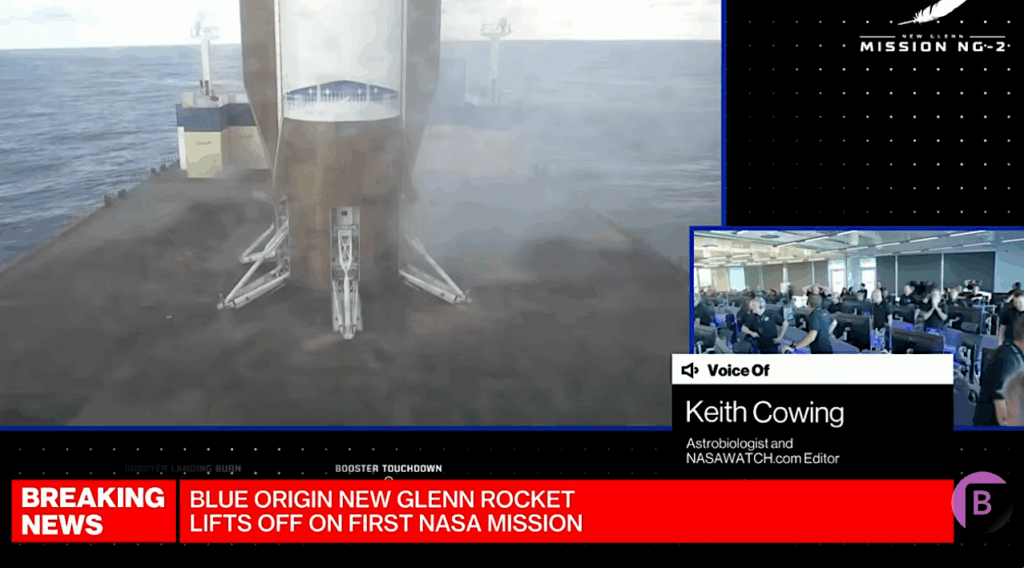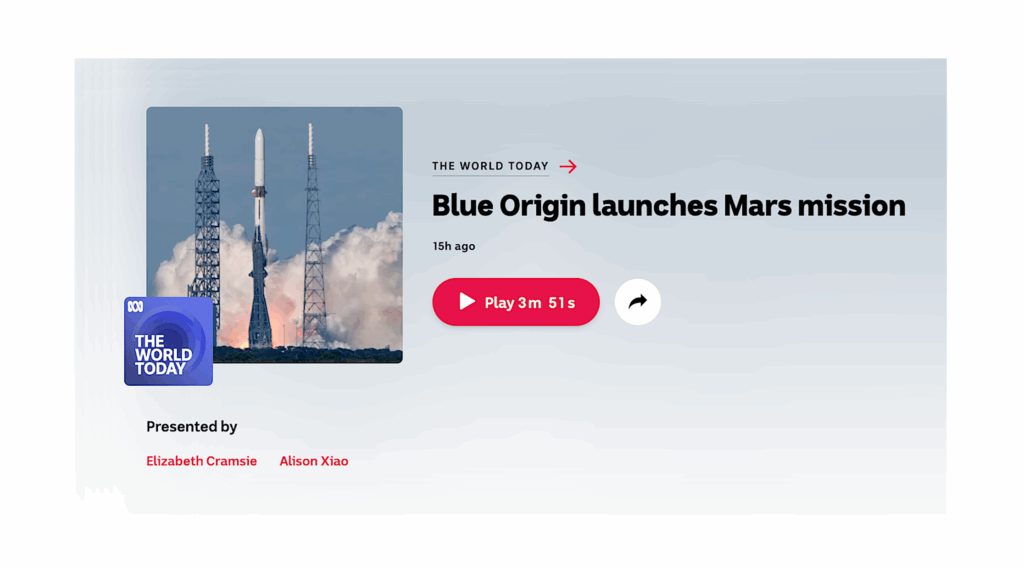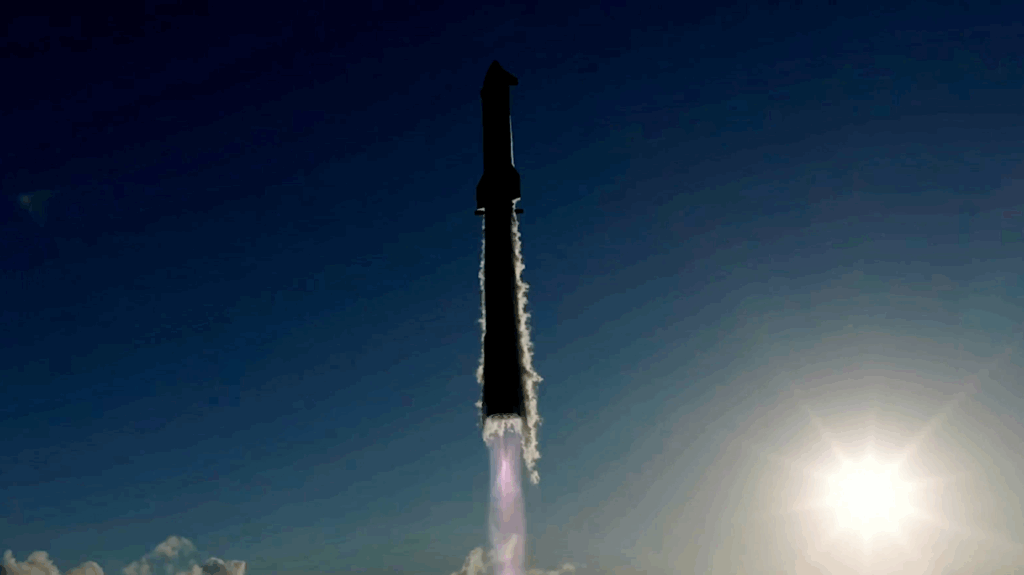ULA Begs Congress To Let Them Kill Delta Rockets (Update)

How Elon Musk exposed billions in questionable Pentagon spending, Politico
“Yet despite the potentially more cost-effective alternative, taxpayers will be paying the price for ULA’s contracts for years to come, POLITICO has found. Estimates show that, through 2030, the cost of the Pentagon’s launch program will hit $70 billion – one of the most expensive programs within the Defense Department. And even if ULA is never awarded another government contract, it will continue to collect billions of dollars – including an $800 million annual retainer – as it completes launches that were awarded before Musk’s company was allowed to compete. That includes a block buy of 36 launches awarded in 2013. Meanwhile, ULA is under investigation by the Pentagon for possible corrupt bidding practices and is preparing to lay off 25 percent of its workforce. Its long-term viability is in doubt. Even the Pentagon’s acquisition chief grants that the creation of ULA – a monopoly criticized by the Federal Trade Commission when it was formed at the government’s behest a decade ago – may have been a mistake. “With the benefit of hindsight, you could say that,” Frank Kendall, undersecretary of defense for acquisition, technology and logistics, told POLITICO.”
A bridge too far: Why Delta rockets aren’t the answer, op ed, Tory Bruno, The Hill
“If you believe that competition is good, and if you believe that affordability is paramount, an Atlas bridge is the only answer. The hardworking, innovative men and women of ULA are proud of their support to America’s space launch capability. From GPS and missile warning to secure communications and weather prediction, we’ve launched the satellites the military intelligence community depends on for every mission — and we’ve done so with reliability no one can match. We’re ready to continue that mission. Please ask Congress to create the smooth transition from Atlas to Vulcan Centaur that will keep America’s launch industry healthy for decades to come.”
ULA Gets A Russian Christmas Gift From Sen. Shelby, earlier post
“ULA has ordered additional Atlas engines to serve our existing and potential civil and commercial launch customers until a new American-made engine can be developed and certified.”
Senator Shelby protects Alabama’s role in rocket production, op ed, Huntsville Times
“In Decatur, the United Launch Alliance (ULA) builds the Atlas V and Delta IV rockets which launch our nation’s military, NASA, and commercial satellites into space. The ULA plant employs or directly contracts with close to 1,000 Alabamians across north Alabama.”
 Keith’s note: First ULA gets Shelby to side with them over the whole RD-180 thing to save jobs (among other things). Now you have to wonder whether Shelby is going to feel betrayed by ULA now that they want to close down Delta production in Alabama – i.e. JOBS. Then again with the unwieldy legacy arrangements that ULA has in place with DoD that will eventually go away it is probably time for them to do a drastic overhaul of how they do business. ultimately they need to able to compete in an open market on cost and performance – without DoD’s finger on the scale.
Keith’s note: First ULA gets Shelby to side with them over the whole RD-180 thing to save jobs (among other things). Now you have to wonder whether Shelby is going to feel betrayed by ULA now that they want to close down Delta production in Alabama – i.e. JOBS. Then again with the unwieldy legacy arrangements that ULA has in place with DoD that will eventually go away it is probably time for them to do a drastic overhaul of how they do business. ultimately they need to able to compete in an open market on cost and performance – without DoD’s finger on the scale.









Keith,
The Atlas production line is also in Decatur, Alabama, in the same building as the Delta line. It’s true they’ll shed some jobs in the process, but not as many as they would if they downselected to Delta (like SpaceX wants to force them to), because they’d either be out of business, or on USAF life support because they wouldn’t win many commercial or gov’t launches on merit if they were stuck with Delta.
The fact that in a notionally capitalist economy a company has to beg Congress for permission to make decisions about what products they sell or don’t sell, and what components vendors they’re allowed to use is kind of darkly amusing.
~Jon
[And by way of disclaimer before anyone else points it out, yes Altius has done work for ULA in the recent past. We’ve also done a tiny bit of work for SpaceX too. I want to see them both successful.]
AFAIK the Delta IV is not offered on the commercial market. And no one who can get an alternate launcher slot will pick it. The Delta IV is almost twice as expensive as the Atlas V and about five times as expensive as the Falcon 9.
The USAF/NRO will not let ULA end the Delta IV line as long as there is no alternates to the Delta IV Heavy.
The future of ULA appears to be murky especially with the inadequate funding for the NGLV (Vulcan) from Lockheed Martin & Boeing.
I personally would like nothing more than to see ULA break apart. I see Boeing as a company that can actually be a productive and effective company in the launcher industry once they cut the fat; Lockmart being the fat of course.
Lockmart has been a parasite on the American taxpayer for decades, siphoning off tax-dollars for overly expensive products that never meet QA/QC standards and or timelines. The Orion, F-35, Littoral Combat Ship are just a few of the products that they have created that have failed to live up to the promises they made. This is not to mention all of the corruption scandals and investigations by the DOJ, GAO, and SEC they have had over the years. Some of the best products they have made over the years they claim only because those products were created by companies they bought out or merged with (Northrop Gruman, Martin Mariotta, Sikorsky just to name a few).
I really hope that the QA/QC problems they have had with some of their most recent products will keep them from receiving anymore government contracts for the foreseeable future (See Oshkosk winning the bid over them for the JLTV).
Note: This is not meant to be an attack on the workers at Lockmart, but an attack on the upper managers, board of directors, and the corporate structure of the company.
Don’t forget that Boeing developed the not-very-competitive Delta-4 (and the failed Delta-3 before that) while Lockheed developed the superior Atlas-5 (after inheriting the Atlas line from General Dynamics).
A large part of why Atlas 5 was cheaper is because they got an exemption from the original EELV requirements – they never built a heavy variant and they never developed a US equivalent to the RD-180 (which also meant they got to keep using cheap Russian rocket engines). Also, they didn’t inheirit Atlas, they bought it from GD – and later charged the cost back to the government.
What you’re describing sounds like a classic “bait and switch scam”. The US Taxpayer never got the Atlas V Heavy (with US engines) that they paid for.
Notice how I said that the best products/services that Lockmart claim are things they gained through buyout or merger (Atlas line).
I should mention the only reason I can see Boeing surviving and Lockmart not surviving is in the fact that Boeing actual provides substantial business to the commercial market in other areas. Lockmart might in small parts of their portfolio, but otherwise completely survives through government contracts; the majority of which are military.
“The fact that in a notionally capitalist economy a company has to beg Congress for permission to make decisions about what products they sell or don’t sell, and what components vendors they’re allowed to use is kind of darkly amusing.”
ULA has the right to sell Atlas to whoever wants to buy it. And Congress, as a customer, has the right to not buy it for military launches as long as it’s sporting Russian engines.
As soon as SpaceX is certified for the full range of DOD payloads Russia will be unable to hold DOD hostage. I agree Congress has the right to cut off procurement of the RD-180 but at the moment this is looking rather unlikely.
Agreed. But it is fun to watch McCain and Shelby poke at each other. https://uploads.disquscdn.c…
This is an interesting image from a later three stooges short.
Curly Howard (Horowitz) – the inventor of breakdancing – got his nickname because of his long curly hair which he was forced to shave for the shorts. He suffered a stroke and his place was taken by his brother Shemp. In this scene, the weakened Curly has a brief cameo with his hair grown out.
https://www.youtube.com/wat…
Keith – OT
Did you catch this about one of ULA parent companies? They are moving the commercial crew schedule to the right
https://www.nasaspaceflight…
And I also read that NASA is paying the Russians for Soyuz seats in 2018-2019. It must be clear that SpaceX is also going to miss their dates as well.
Wrong conclusion.
NASA contracted six seats in February 2015 covering 2018-2019. This is because at that time (and now) there is not a certified US taxi service, so NASA must reserve seats.
As soon as Dragon and/or Starliner go into formal service the Soyuz status changes:
“PROCUREMENT OF CREW TRANSPORTATION AND RESCUE SERVICES FROM ROSCOSMOS
Synopsis – Feb 06, 2015
General Information
Solicitation Number: NNJ15539678L
Posted Date: Feb 06, 2015
…However, once it is determined that US Commercial entities are able to fulfill increment crew transportation requirements, the US Commercial vehicles will become NASA’s primary transportation source to ISS. The Soyuz vehicles procured under this action may then be utilized as a backup transportation option to ensure proper launch cadence or to augment future ISS operations and research.”
What an unabashed puff-piece Op-Ed, by ULA’s Tory Bruno. It is not enough that the Federal Govt. has, heretofore, subsidized much of ULA’s operations. An argument could be made that ULA has taken unfair advantage of a monopolistic situation, and engaged in egregious profiteering (at the expense of the American taxpayer) for the better part of a decade.
It is a bit of poetic irony, to observe Tory Bruno’s public and political contortions, now that he has to appeal to the spirit of “competition” and “affordability”. One might even go so far as to qualify ULA’s behavior as pointedly hypocritical. They now find themselves caught with their metaphorical pant’s down, due to the ascendancy of an up-start, private company (SpaceX) which embodies true American ideals of innovation, competitive spirit, risk-taking, efficiency and pursuit of excellence.
This is in no way meant to diminish the incredible talent and accomplishments of ULA’s engineers, scientists and general work-force, nor the important contributions they have made to our National security. ULA’s current situation is a result of (mis)management, short-sighted vision and poor planning, by ULA executives.
You’ve really nailed it. For years we’ve seen ULA engineers publish papers on topics like advanced upper stages, LEO fuel depots, and the like. Yet none of these innovative, potentially game changing, projects were ever funded.
“If you believe that competition is good, and if you believe that affordability is paramount…”
Gee…wasn’t it just a couple of years ago that ULA was pulling out every dirty trick they could think up to squash competition? And wasn’t it just a couple of years ago that they insisted that our national security launches were way too precious to trust to “affordable rockets”? Jerks!
What a puff piece, wonder if he managed to keep a straight face while he wrote this.
“We’re now developing a new rocket, the powerful American Vulcan Centaur.”
gosh he even managed to get powerful american in the op-ed, he is running for something?
“Of course, the issue is that the Atlas uses a Russian-made engine. We agree wholeheartedly that it’s time to transition to an American engine, and we’re working tirelessly to field that new all-American vehicle in roughly half the time it’s taken to develop previous rockets”
Working tirelessly? At what? Paying lobbyists to keep trying to get congress (Sen Shelby) to slip something in the budget? Like he did that lifted the ban that Senator McCain had fought to get put in? You are still currently trying to buy more Russian engines, hardly sounds like you mean it.
Working tirelessly, you mean teaming up with Jeff Bezos and Blue Origin who HAVE actually been working tirelessly on a new engine so your parent companies don’t have to invest?
I’ve got to admit that any material progress being made on Vulcan is strictly below-the-parapet at the moment.
I would cut ULA a break here. Bruno is rather new to the company and is attempting a difficult turnaround. He would probably acknowledge the company’s past mistakes…which were essentially encouraged by their primary customer. And in lobbying his company’s interests to Congress, Bruno is reportedly spending less than SpaceX.
I would just like Boeing and Lockheed to actually let ULA be ULA.
But what is ULA without Lockheed and Boeing? Does it have internal capital? Management autonomy? There was an obvious rationale for the joint venture when it was a monopoly, but now it’s not. What benefit will the Vulcan program get out of having two owners, as opposed to being fully owned by one of the two? Why doesn’t one of the partners simply buy out the other?
It would do a IPO based on it current assets and revenue streams and they might be able to hold back shareholder dividends and innovate.
They cannot do an IPO because 100% of the ownership is already held by the two partners, Lockheed and Boeing, and by extension their existing stockholders. The managers cannot hold back dividends because the boards would fire them. That, of course, is why SpaceX will probably never have an IPO.
I am saying, I would rather see ULA as it’s own entity over the current partnership.
If it becomes unprofitable the owners might just decide to spin it off. If not, I can’t see them doing so.
I know this is a reply to an old thread, but if you withhold dividends to invest in your product, shareholders would vote the CEO and CFO out in a heartbeat. Especially when it comes to a risky adventure like building a rocket.
I would cut him more slack if he wasn’t constantly slinging BS. “F.U.D.” (Fear, Uncertainty, and Doubt) and “Confuse and Deceive” are an art form for him. His phony plain speaking, yet awesomely cool guy persona, is a flimsy pose.
Interesting. Delta-IVH is currently the US’s only medium-heavy lifter. I can’t see ULA willingly standing aside for Falcon Heavy so there has to be another reason for this… Hmm…
At least on paper, Atlas-V-5H1 has about a 20% payload-to-LEO advantage over the current version of Delta-IVH. Being kerolox rather than hydrolox, I imagine that the type would be cheaper to operate too. I wonder if ULA are hoping to standardise around the RD-180-powered Atlas-V CCB for the foreseeable future?
I remember when the DIV complex was being constructed. The engineers were given a clean sheet. Everything was done in a way that seemed to promise efficiency, from the horizontal integration to the relatively (compared to the RS-25) simple RS-68. And the Delta program was at that time run by Boeing rather than Lockheed Martin. Where was the error? In the clarity of hindsight, it was a problem similar to that of Shuttle. There were no flying prototypes to get a real measure of processing times and operating cost, and the magic of systems engineering failed to gve accurate figures. The advantages of horizontal entegration were undercut by the slow timelines for vertically integrating both payload and SRBs and doing additonal work at the pad. The weight of the MST was underestimated so seriously that the huge concrete pillars under the pad had to be cut out with huge saws and replaced with even bigger pillars. As with Shuttle the launch rate was overestimated, the final straw in launch costs that were much higher than predicted, and like Shuttle there was no realistic way for the design to evolve. There was an industrial espionage scandal that resulted in the loss of DOD payloads. At the same time all the experience gained in cost control with the Delta II was pretty much ignored.
Part of the error is using LH2 as a fuel for a first stage. On top of all of the headaches which come with such a deep cryogenic fluid, it’s density is rather low, which makes everything bigger.
One of the failings of the US launch industry over the entire period of EELV is the lack of a high thrust LOX/kerosene first stage engine. The fact that the US had to resort to buying the RD-180 from the Russians should have been a huge clue.
Yet back in the 60’s we had the F-1, a simple and robust LOX/kerosene engine with an unprecedented 6.6MN thrust, still unequaled for a single chamber liquid fueled engine, while the Russians were struggling with a huge cluster of the more sophisticated but smaller 1.5MN NK-15s.
The Politico piece contains this gem:
“ULA argues it has reduced launch costs for the government by $80 million between 2006 and 2013.”
That’s like somebody who overcharged you $100,000 for your car saying they “saved you ten bucks.” $80 million is peanuts to these people.
The government market is required to accept the lowest bid but is not sensitive to cost, i.e. the DOD will launch the same number of satellites whether it pays $60M or $120M per launch. So when ULA became the sole supplier it had the opportunity to increase profits substantially simply by raising its prices. It had to justify these price increases by documenting cost increases, which of course made it uncompetitive in the commercial marketplace.
That would require full DOD funding for Vulcan/ACES development. How much is ULA asking?
“the US share of that commercial launch market went, literally, to zero”
I thought that was result of Shuttle that was to be the vehicle to do ***all*** launches of commercial, DOD, HSF, science, etc. However, Shuttle had very stringent requirements, subject to all kinds of delays. Then you have ESA more adaptive to commercial launch market, also their launch site close to equator was a huge plus.
Because that’s the business model they’ve been following for decades, that’s why.